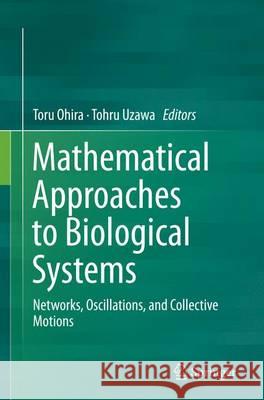Mathematical Approaches to Biological Systems: Networks, Oscillations, and Collective Motions » książka
topmenu
Mathematical Approaches to Biological Systems: Networks, Oscillations, and Collective Motions
ISBN-13: 9784431562382 / Angielski / Miękka / 2016 / 166 str.
Kategorie:
Kategorie BISAC:
Wydawca:
Springer
Język:
Angielski
ISBN-13:
9784431562382
Rok wydania:
2016
Wydanie:
Softcover Repri
Ilość stron:
166
Waga:
3.08 kg
Wymiary:
23.5 x 15.5
Oprawa:
Miękka
Wolumenów:
01











